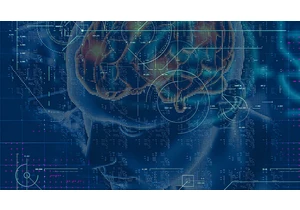Sometimes, music is the best medicine. The right tune at the right time can make us feel more relaxed, give us the needed boost to finish a work task, or even put a smile on our face. British music tech startup MediMusic bets that music can also help us recover from illnesses, make medicine more effective, and reduce the reliance on opiates to treat pain.
MediMusic recently concluded a clinical trial with the British National Health Service that showed a positive impact of its curated playlists on dementia patients, and the company is set to conduct additional trials soon. At the same time, MediMusic is taking first steps to commercialize its technology, and even launch its own version of the iPod for clinical settings.
“We all self-medicate with music,” says MediMusic cofounder and CEO Gary Jones. But while most people just instinctively pick a song or an album that makes them feel good, Jones and his team were looking for a more reliable approach. “We’re dispensing music as medicine,” he says.
To do so, MediMusic is breaking down songs with the help of machine learning algorithms to categorize them by attributes like timbre, tempo, and frequency. It’s an approach similar to the way online music pioneer Pandora has been building radio stations, albeit with somewhat different goals. While Pandora uses these kinds of insights to match similar-sounding songs for endless streams of music, MediMusic optimizes its playlists around a desired outcome.
In the case of its dementia trial, MediMusic set out to help patients deal with moments of anxiety, which often happen at sundown. “Quite often with dementia, it’s the most extreme form of anxiety,” explains Jones. The problem is that common antianxiety medications can make dementia worse. Instead, MediMusic compiled 20-25 minute playlists designed to slow the heart rate of affected patients. That amount of time is “scientifically proven to be the maximum optimum time to get [one’s] heart rate down,” according to Jones.
The outcome of the trial was stark: “We reduced the heart rate in 90% of them,” says Jones. “61.5% got back to within their resting heart rate range.”
MediMusic now wants to do further scientific trials with patients who get anxiety while visiting the dentist and people with chronic back pain. “We make pain medication more performant,” says Jones. “You have to give less, and it lasts longer.”
The company also recently won its first contract to use MediMusic in ICUs as a way to reduce stress and anxiety. However, getting doctors and nurses to actually accept music as medicine is not an easy feat. “Many healthcare contexts prove to be challenging environments for rolling out digital music products,” wrote music healthtech expert Robert Marshall in a recent article about the space. “Making it easy for healthcare professionals to deliver services to patients is key,” he added.
That’s why MediMusic developed a dedicated hardware player for its music—think of it as an iPod optimized for clinical settings, if you will—that works in concert with a wearable meant to track a patient’s heart rate. “What hospitals don’t want is a whole bunch of hardware lying around, with lots of power leads,” says Jones.
Figuring out how to best work with healthcare providers, and clearing the necessary regulatory hurdles, does take some time. Bands and labels shouldn’t expect a massive windfall from music healthtech any time soon, believes Tuned Global Chief Revenue Officer Spiro Arkoudis, whose company is helping MediMusic with the licensing and delivery of major label music. “It will grow over time, but it will take a period of time if it’s going to be a huge revenue business for the labels,” Arkoudis says.
Still, the music industry is starting to pay closer attention to the intersection of music and health. Universal Music has struck more than 40 licensing agreements with healthtech startups to date, and CEO Lucian Grainge professed to be “especially passionate” about the subject in a recent staff memo. “What excites me is that it’s cost-effective, non-invasive and drives truly beneficial results,” he wrote. “While it’s a field still in its infancy, this area will become an increasingly important component of our strategy.”
One reason labels like Universal are embracing music healthtech is that they don’t want to lose out to the alternative: A number of startups in the health and wellness field are already embracing AI-generated tunes to avoid licensing fees altogether. However, Jones believes that approach is shortsighted, as patients have much stronger reactions to songs they know than to unrecognizable background music.
“The jury’s out on AI-generated music,” Jones says. “We’re sticking with what works.”
Login to add comment
Other posts in this group

If you’ve built an audience around documenting your 9-to-5 online, what happens after you hand in your notice?
That’s the conundrum facing Connor Hubbard, aka “hubs.life,” a creator who

OpenAI should continue to be

WhatsApp should prepare to leave the Russian market, a lawmaker who regulates the IT sector

This is an edition of Plugged In, a weekly newsletter by Fast Company global technology editor Harry McCracken. You can sign up to receive it each Friday and read all issues



Big changes are coming to the web in the days ahead. On July 25, the U.K.’s Online Safe
